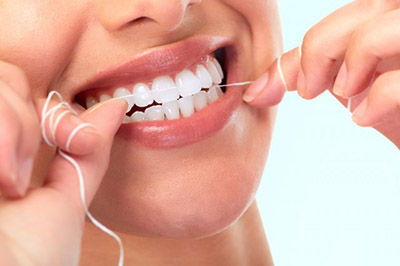 Perhaps this has happened to you?
Perhaps this has happened to you?
Your dentist advises you to floss. Or you read about the benefits of flossing somewhere. You went back and tried flossing. You find it to be quite hard. You gave up. If that has occurred to you before, you are not alone. Truth be told, the vast majority of people find flossing a tough habit to cultivate. Many Malaysians today don’t floss daily. In this article, you’ll find out the health benefits of flossing, the flossing tools available, and the technique that makes flossing much easier.
Health benefits of flossing
Some people might think, what’s the big deal about flossing anyway? Isn’t brushing my teeth enough? Flossing is just something extra, right? Wrong. Flossing is not just something “extra”. It is, in fact, just as important, perhaps even more so than toothbrushing. Due to malalignment of our teeth, there will be areas where the bristles of the toothbrush cannot reach. When we eat, food gets stuck inside that nook and cranny of your teeth. Not even the best toothbrush can’t do the job of the floss. There are plaque trapped under the gums that are not visible to the eye that needs to be removed. Those are the areas prone to developing tooth decay.
The gums and the alveolar bone makes up the foundation that supports the teeth. So don’t neglect this aspect of the oral hygiene routine if you want your teeth to last long.
Dental plaques -> hardens to tartar ->Gingivitis -> Periodontitis -> Teeth becomes shaky -> Losing your teeth
It is not just for the sake of the oral cavity, for studies has shown the linkage of periodontal diseases to other health issues of the body such as:
- Chronic obstructive pulmonary disease
- Low birth rates in newborns
- Inflammatory bowel diseases
Apparently, for the elderly, more teeth and better dental health behaviours would be related to increased longevity . Meaning that, if you want to add years to your life, floss.
Flossing tools
Floss was once made from silk fibres twisted to form a long strand. In our modern times, floss is usually made from nylon filaments or plastic monofilaments. It is totally safe for the teeth and gums when used correctly.
Step into any pharmacy or supermarket and you’ll notice numerous types of floss.
Waxed vs. Unwaxed
The wax coating helps the floss glide through your teeth a little easier. It is up to your personal preference. If you have tight spaces between your teeth or have braces, the waxed floss might move a little easier through the areas.
Flavoured vs. Unflavoured
Most floss has a minty scent. Popular flavours of floss also include wintergreen and cinnamon.
Handle vs. No handle
Some people prefer the handle for one-handed flossing without the mess, and might be easier reaching up to the back teeth.
Dental tapes
Preferable if you have “wider than average” spaces between your teeth or if you have bridgework.
Super Foss
This is an orthodontic floss with a dental floss threader that is ideal for cleaning braces, bridges and wide gaps between teeth.]
Water Flosser
This new piece of innovation delivers a water pressure that dislodges plaque. Also able to remove bacteria deep between teeth and below the gumline for better oral health. The downside to it is they can be costly and bulky, which makes it inconvenient for traveling.
How to Floss
The one-minute flossing technique as shown in the video. Once you master the skill, you will be able to clean the interdental spaces effectively and quickly. Hence, it is possible to make flossing a habit, no matter how busy the day is. 60 seconds is all it takes. You may experience soreness or gums bleeding during the first few days of flossing. This is normal. If the bleeding continues after a week of flossing, consult your dentist.
For me, I only started flossing during my 3rd year of dental school. Mainly after seeing the effects of sub-par oral hygiene of my patients, which has resulted in dental problems and losing teeth. Whenever I don’t floss over a period of time, the gums tend to become swollen, which is a sign of gingival inflammation. Many of my own patients have benefited from the habit of flossing. Sometimes, all it takes is a bit of motivation, diligence and discipline for a vast improvement in oral cleanliness.
For your information, the mouth is the dirtiest part of the body. There are many bacteria that exist in the oral cavity. If the hygiene is not taken care of, it invites oral problems to arise, such as dental caries and gum diseases. According to World Health Organization (WHO), 60–90% of school children and nearly 100% of adults have dental cavities worldwide.
Therefore, I implore you to start this discipline of flossing daily. Kickstarting the habit can potentially save you hundreds, even thousands of ringgit on dental treatment fees due to poor oral hygiene. As they say, prevention is better than cure! Many dental problems are preventable, the power of disease-free mouth is in your hands.
Dr. Edward Tay is a dentist with interest in preventive dentistry and empowering others in oral self-care.
References:
- http://www.who.int/mediacentre/factsheets/fs318/en/
- http://www.ada.org/en/science-research/ada-seal-of-acceptance/product-category-information/floss-and-other-interdental-cleaners
- http://www.myhealth.gov.my/en/flossing/
[This article belongs to The Malaysian Medical Gazette. Any republication (online or offline) without written permission from The Malaysian Medical Gazette is prohibited.]
